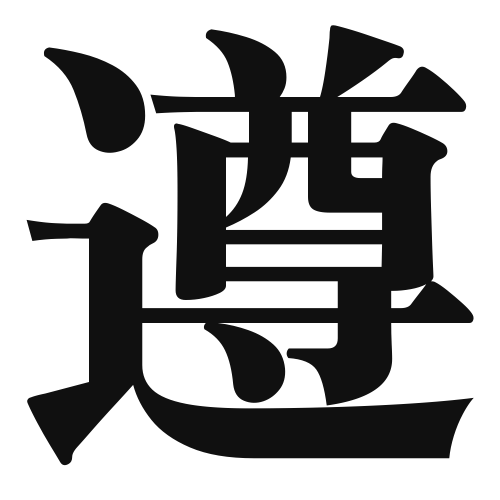1. Overview of Meaning
The kanji “遵” (pronounced “jun”) generally means to follow, comply, or adhere to something. It conveys the idea of obedience or conformity to rules, customs, or principles.
2. Formation and Radical
Formation of the Kanji: The kanji “遵” is a compound character (会意文字) that combines elements to convey its meaning. It consists of the radical for “to walk” (走) and the character “to follow” (隹), symbolizing the act of following a path or direction.
Radical: The radical of “遵” is 走 (to walk), which relates to movement and action.
3. Examples of Usage
Common Words and Phrases:
- 遵守 (じゅんしゅ) – compliance, adherence
- 遵法 (じゅんぽう) – obeying the law
Example Sentences in Daily Conversation:
- 私たちは法律を遵守しなければなりません。 (We must comply with the law.)
- この規則を遵守することが重要です。 (It is important to adhere to this rule.)
4. Synonyms and Antonyms
Similar Kanji:
- 従 (じゅう) – to follow, which emphasizes obedience or submission to authority.
- 守 (まもる) – to protect or guard, which implies a sense of safeguarding rules or principles.
Antonyms:
- 反 (はん) – to oppose, which indicates resistance or defiance against rules or norms.
- 逸 (いつ) – to deviate, which means to stray from a path or rule.
5. Cultural and Historical Background
Relation to Japanese Culture: The concept of “遵” is deeply rooted in Japanese culture, where adherence to social norms and rules is highly valued. It reflects the importance of harmony and order in society.
Proverbs and Idioms:
- 「法を遵守する」(To comply with the law) emphasizes the importance of following legal and ethical standards.
- 「規則を遵守する」(To adhere to rules) highlights the significance of maintaining order in various aspects of life.
